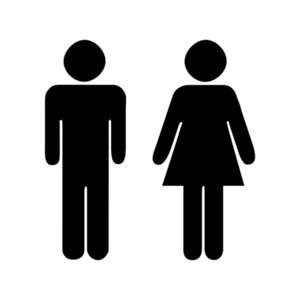
The 2013 Global Gender Gap Report shows that the world's gender gaps narrowed slightly in 2013 on the back of definite, if not universal, improvements in economic equality and political participation between the sexes.
The report
The 18th annual edition of the report, published by the World Economic Forum (WEF), ranks 136 countries on their ability to close the gender gap in areas such as economic participation and opportunity, political empowerment, health and survival, educational attainment, political participation and economic equality.
The report, which was made available to the Ghana News Agency said of the 133 countries that were measured in both 2012 and 2013, 86 actually improved their gender gap.
Top 10 Countries
Overall, the report found Iceland the most advanced country in the world in terms of gender equality for the fifth year running; along with Finland placing second, while Norway took the third place and Sweden fourth.
The countries were joined in the top 10 by the Philippines, which entered the top five for the first time, followed by Ireland, New Zealand, Denmark, Switzerland and Nicaragua.
The 14th place went to Germany, the highest-placed individual in the G20 economy, although it fell one place from 2012.
Gender gaps
At the global level, the report found that in 2013, 96 per cent of the health and survival gender gap had been closed. "It is the only one of the four pillars that has widened since the report was first compiled in 2006.
The report noted that in terms of education, the global gender gap stood at 93 per cent, with 25 countries having closed their gaps completely.
It said the gender gaps for economic equality and political participation were only 60 per cent and 21 per cent respectively, although progress was being made in the areas, with political participation narrowing by almost two per cent over the last year.
'In both developing and developed countries alike, relative to the numbers of women in tertiary education and in the workforce overall, women's presence in economic leadership positions is limited,' it stated.
African Countries
A number of countries in Africa fared relatively well in the report, with Lesotho placing 16th, South Africa 17th, Burundi 22nd and Mozambique 26th, all in the top 30; whereas Ghana occupied the 76th position.
'Countries will need to start thinking of human capital very differently - including how they integrate women into leadership roles. This shift in mindset and practice is not a goal for the future, it is an imperative today,' said Klaus Schwab, Founder and Executive Chairman of the WEF.
'Both within countries and between countries are two distinct tracks to economic gender equality, with education serving as the accelerator. For countries that provide this basic investment, women's integration in the workforce is the next frontier of change.
'For those that haven't invested in women's education, addressing this obstacle is critical to women's lives, as well as the strength of economies,' said Saadia Zahidi, co-author of the Report and Head of the Women Leaders and Gender Parity Programme.
GNA/Ghana




 Former Kotoko Player George Asare elected SRC President at PUG Law Faculty
Former Kotoko Player George Asare elected SRC President at PUG Law Faculty
 2024 elections: Consider ‘dumsor’ when casting your votes; NPP deserves less — P...
2024 elections: Consider ‘dumsor’ when casting your votes; NPP deserves less — P...
 You have no grounds to call Mahama incompetent; you’ve failed — Prof. Marfo blas...
You have no grounds to call Mahama incompetent; you’ve failed — Prof. Marfo blas...
 2024 elections: NPP creates better policies for people like us; we’ll vote for B...
2024 elections: NPP creates better policies for people like us; we’ll vote for B...
 Don’t exchange your life for wealth; a sparkle of fire can be your end — Gender ...
Don’t exchange your life for wealth; a sparkle of fire can be your end — Gender ...
 Ghana’s newly installed Poland train reportedly involved in accident while on a ...
Ghana’s newly installed Poland train reportedly involved in accident while on a ...
 Chieftaincy disputes: Government imposes 4pm to 7am curfew on Sampa township
Chieftaincy disputes: Government imposes 4pm to 7am curfew on Sampa township
 Franklin Cudjoe fumes at unaccountable wasteful executive living large at the ex...
Franklin Cudjoe fumes at unaccountable wasteful executive living large at the ex...
 I'll 'stoop too low' for votes; I'm never moved by your propaganda — Oquaye Jnr ...
I'll 'stoop too low' for votes; I'm never moved by your propaganda — Oquaye Jnr ...
 Kumasi Thermal Plant commissioning: I pray God opens the eyes of leaders who don...
Kumasi Thermal Plant commissioning: I pray God opens the eyes of leaders who don...
